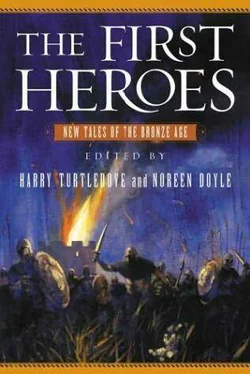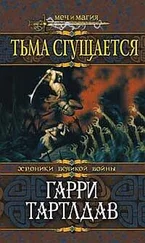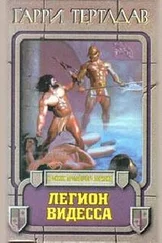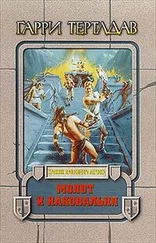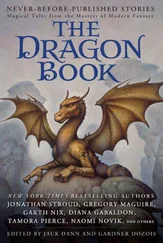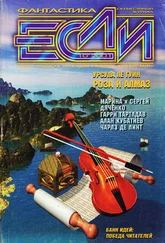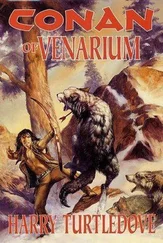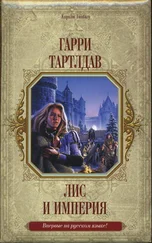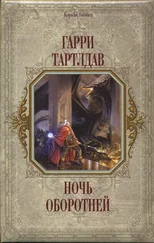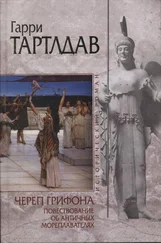Гарри Тертлдав - The First Heroes
Здесь есть возможность читать онлайн «Гарри Тертлдав - The First Heroes» весь текст электронной книги совершенно бесплатно (целиком полную версию без сокращений). В некоторых случаях можно слушать аудио, скачать через торрент в формате fb2 и присутствует краткое содержание. Жанр: Фантастика и фэнтези, на английском языке. Описание произведения, (предисловие) а так же отзывы посетителей доступны на портале библиотеки ЛибКат.
- Название:The First Heroes
- Автор:
- Жанр:
- Год:неизвестен
- ISBN:нет данных
- Рейтинг книги:3 / 5. Голосов: 1
-
Избранное:Добавить в избранное
- Отзывы:
-
Ваша оценка:
- 60
- 1
- 2
- 3
- 4
- 5
The First Heroes: краткое содержание, описание и аннотация
Предлагаем к чтению аннотацию, описание, краткое содержание или предисловие (зависит от того, что написал сам автор книги «The First Heroes»). Если вы не нашли необходимую информацию о книге — напишите в комментариях, мы постараемся отыскать её.
The First Heroes — читать онлайн бесплатно полную книгу (весь текст) целиком
Ниже представлен текст книги, разбитый по страницам. Система сохранения места последней прочитанной страницы, позволяет с удобством читать онлайн бесплатно книгу «The First Heroes», без необходимости каждый раз заново искать на чём Вы остановились. Поставьте закладку, и сможете в любой момент перейти на страницу, на которой закончили чтение.
Интервал:
Закладка:
"Sickness?" Nessus suggested. I let the word lie there, not caring to pick it up. It struck me as unlikely, in any case. Most folk are of sturdy constitution. We die, but we do not die easily. I had trouble imagining a sickness that could empty a whole countryside.
Then Oreus said his second sensible thing in a row. Truly this was a remarkable day. "Maybe," he said, "maybe their gods grew angry at them, or tired of them."
A cool breeze blew down from the north. I remember that very well. And I remember wondering whether it was but a breeze, or whether it was the breath of some god either angry or tired. "If that be so," I said, "if that be so, then we will not take tin back to the Inner Sea, and so I shall hope it is not so."
"What if it is?" Nessus asked nervously, and I realized I was not the only one wondering if I felt a god's breath.
I thought for a moment. With that breeze blowing, thought did not come easily, and the moment stretched longer than I wished it would have. At last, I said, "In that case, my friend, we will do well enough to go home ourselves, don't you think?"
"Do our gods see us when we are in this far country?" Oreus asked.
I did not know the answer to that, not with certainty. But I pointed up to the sun, which, fortunately, the clouds and mist did not altogether obscure at that moment. "He shines here, too," I replied. "Do you not think he will watch over us as he does there?"
That should have steadied him. But such was the empty silence of that countryside that he answered only, "I hope so," in tones suggesting that, while he might hope, he did not believe.
Two days—or rather, two nights—later, a nuggy came into our camp. I would not have known him from a piskie or a spriggan, but a nuggy he declared himself to be. I had sentries out around our fires, but he appeared in our midst without their being any the wiser. I believe he tunneled up from under the ground.
He looked like one who had seen much hardship in his time. I later learned from him that was the true aspect of nuggies, but he owned he had it more than most. He was ill-favored, a withered, dried-up creature with a face as hard and sharp as an outcropping of flint. In other circumstances, his tiny size might have made it hard for me to take him seriously; he was no larger in the head and torso than one of us would have been at two years, and had only little bandy legs below, though his arms were, in proportion to the rest of him, large and considerably muscled.
His name, he said, was Bucca. I understood him with difficulty. We did not speak the same language, he and I, but our two tongues held enough words in common to let us pass meaning back and forth. His rocky face worked with some mixture of strong emotion when he came before me. "Gods be praised!" he said, or something much like that. "Old Bucca's not left all alone in the dark!" And he began to weep, a terrible thing to see.
"Here, now. Here, now," I said. I gave him meat and bread. Had we had wine, I would have given him that as well. But for us to carry wine would have been like stags carrying fire with which to roast them once they were slain.
He ate greedily, and without much regard for manners. Though he was so small, he put away a startling amount. Grease shone on his thin lips and his chin when he tossed aside a last bone and said, "I hoped some folk would come when the tin stopped. I prayed some folk would come. But for long and long, no folk came. I drew near to losing hope." More tears slid down the cliffsides of his cheeks.
"Here now," I said again, wanting to embrace him yet fearing I would offend if I did. Only when he came over and clung to my foreleg did I take him up in my arms and hold his small chest against my broad one. He was warm and surprisingly hard; his arms, as they embraced me, held even more strength than I would have guessed. At last, when he seemed somewhat eased, I thought I could ask him, "Why did the tin stop?"
He stared at me, our two faces not far apart. Moonlight and astonishment filled his pale eyes. "You know not?" he whispered. "That is the truth: I know not," I replied. "That is why I came so far, that is why we all came so far, in the Horse of Bronze—to learn why precious tin comes no more to the Inner Sea." "Why?" Bucca said. "I will tell you why. Because most of us are dead, that is why. Because where they are, we cannot live."
I did not believe all Bucca told me. If I am to speak the whole truth here, I did not want to believe what the nuggy told me. And so, not believing, I told a party of hes to come with me so that we might see for ourselves what truth lay in his words—or rather, as I thought of it, so that we might see he was lying. "You big things are bold and brave," Bucca said as we made ready to trot away. "You will have grief of it. I am no bolder or braver than I have to be, and already I have known griefs uncounted."
"I grieve for your grief," I told him. "I grieve for your grief, but I think things will go better for us."
"It could be," Bucca replied. "Yes, it could be. You big things still believe in yourselves, or so it seems. We nuggies did not, not after a while. And when we did not believe, and when they did not believe . . . we died."
"How is it that you are left alive, then?" I asked him. This question had burned in my mind since the night when he first appeared amongst us, though I had not had the heart to ask him then. Now, though, it seemed I might need the answer, if answer there was.
But Bucca only shrugged those surprisingly broad shoulders of his. "I think I am too stubborn to know I should be dead." That, then, meant nothing to me. I have learned more since than I once knew, however. Even then, I wanted nothing more than to get away from the nuggy. And away we went, rambling east into one of the more glorious mornings the gods ever made.
It was cool. It was always cool on the Tin Isle, except when it was downright cold. A little mist clung to the hillsides. The sun had trouble burning it off. This too is a commonplace of that country. But oh! the greens in that northern clime! Yes, I say it again. Nothing round the Inner Sea can match them, especially not in summertime. And those hills were not stark and jagged, as are the hills we know, but smooth and round, some of them, as a she's breast. The plains are broad, and roll gently. Their soil puts to shame what goes by that name in our land. Yet it grew no wheat or barley, only grass. Indeed, this might have been a countryside forever without folk.
As we trotted east, we left the hills behind us. The plain stretched out ahead, far broader than any in our own homeland. But only a cold, lonely wind sighed across it. "Plague take me if I like this place," Oreus said.
"We need not like it," I answered. "We need but cross it."
Though I might say such things to Oreus, before long the stillness came to oppress me, too. I began to have the feeling about this plain that one might have about a centaurs' paddock where no one happens to be at a particular time: that the folk are but gone for a moment and will soon return. About the paddock, one having such a feeling is generally right. About this plain, I thought otherwise.
There I proved mistaken.
I found—the entire band of hes found—I was mistaken some little while before actually realizing as much. We hurried through the tall grass of the plain, making better time than we had before, and did not think to wonder why until Hylaeus looked down and exclaimed in sudden, foolish-sounding surprise: "We are following a trail."
All of us stopped then, staring in surprise at the ground under our hooves. Hylaeus was quite correct, even if we had not noticed up until that time. The earth was well trodden down, the grass quite sparse, especially compared to its rich lushness elsewhere.
Nessus asked the question uppermost in all our minds: "Who made it?"
Читать дальшеИнтервал:
Закладка:
Похожие книги на «The First Heroes»
Представляем Вашему вниманию похожие книги на «The First Heroes» списком для выбора. Мы отобрали схожую по названию и смыслу литературу в надежде предоставить читателям больше вариантов отыскать новые, интересные, ещё непрочитанные произведения.
Обсуждение, отзывы о книге «The First Heroes» и просто собственные мнения читателей. Оставьте ваши комментарии, напишите, что Вы думаете о произведении, его смысле или главных героях. Укажите что конкретно понравилось, а что нет, и почему Вы так считаете.
